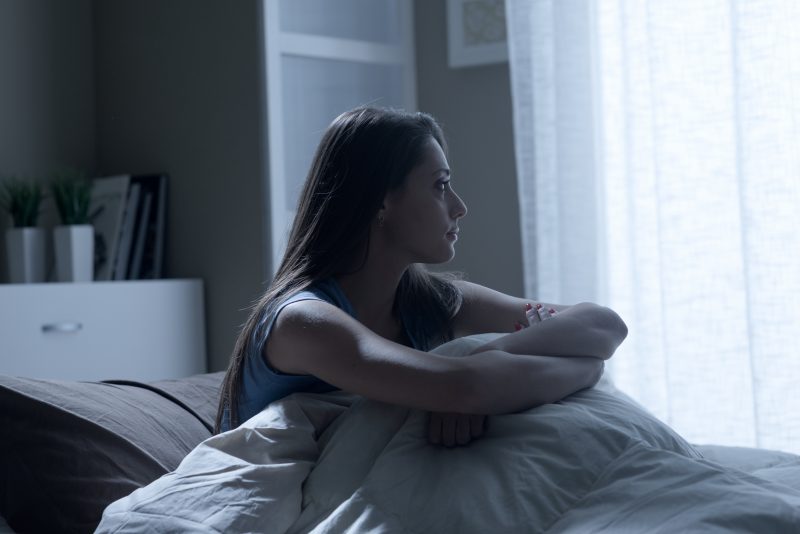It’s estimated that 50 to 70 million Americans have problems with getting good sleep. Are you one of them? Or, are you getting enough sleep each night; at least 7 hours, with much of it being deep sleep?
If not, here’s what you need to know. A new study was recently published about the effects of insufficient sleep and rapid eye movement (REM). Plus, we have 6 reasons you may not be getting enough, and what you can do about it.
Not Getting Good Sleep? It May Be a Dire Situation
It’s no secret that lack of sleep has negative effects on your body. If you’re not getting good sleep each night, at least 7 hours, you likely also get less REM. This can increase cortisol levels, depressed moods, and irritability while decreasing reaction times, focus, and overall wellness.
But, do these effects have dire consequences?
New Study Links REM and Mortality
A new study published in July in JAMA found an association with less REM percentage and an increased risk for death in middle-aged and older adults (1).
Investigators at the University of California, San Diego, studied insufficient REM percentage and its consequences. They found that each 5% reduction of REM over a 12-year period was associated with a 13% increase in mortality rate.
The primary study included 2675 men (mean age, 76.3 years), and followed them for approximately 12 years. A cohort study included 1386 individuals (54.3% men, mean age 51.5 years), with a follow-up of approximately 21 years.
The investigators followed the sleep scores and mortality throughout the study. Self-report sleep measures were collected using the Pittsburgh Sleep Quality Index and the Functional Outcomes of Sleep Questionnaire.
This study did not show cause and effect but did establish the association of low REM percentage and increased mortality.
Causes of Death in the Study
The causes of death in the study were categorized as cardiovascular, cancer, or other.
Approximately half (53%) of the participants in the primary study died during follow-up. The highest percentage of deaths was recorded among those in the lowest REM sleep percentage.
REM Percentage
The percentage of REM was calculated throughout the study using polysomnography and evaluation with the Epworth Sleepiness Scale.
A “healthy” percentage of REM for most adults is approximately 20-25% (2). The mean percentage of REM sleep in the study was 19.2%.
Dire Consequences
Unfortunately, the answer is “yes,” the consequences of insufficient sleep and REM percentage may be dire.
While this study shows increased mortality, the investigators are not sure exactly what connects it to REM. They do know insufficient REM percentage and sleep negatively affect the cardiovascular system, metabolism, brain, and overall quality of life.
How can you get more REM and avoid the effects?
6 Reasons You’re Not Getting Good Sleep and REM
1. Stress
Stress affects individuals in many different ways. It can affect digestion, emotional stability, the cardiovascular system, brain function, and for many, sleep quality (3).
And there’s more. Recent studies have shown it may be associated with lower brain volume and memory issues in mid-life (5).
If you’re going to bed with lots on your mind and feel that stress is negatively affecting your sleep, it’s important to take stress relief-steps.
What to do: Do your best to get some stress relief before bed. Try exercising earlier in the day or getting outside with a walk after dinner. Take time to write in a journal before bed, prepare for your next day, and pray. For more tips to reduce stress and cortisol, see this post.
2. Artificial Light & Circadian Rhythms
Many of us live in an artificial light world. We’re inside too much of the day, especially in the winter.
Our circadian rhythms depend on the natural cycle of light in order to promote good sleep cycles.
If we’re inside all day without much exposure to natural sunlight, this rhythm can suffer. If we experience excessive nighttime exposure to artificial light, our brains are signals that it is still daytime, and our rhythms suffer. A combination of lack of daylight, and too much artificial evening light, can lead to poorer sleep patterns.
What to do: Make every effort to get out into natural sunlight in the morning, and throughout the day. Turn lights down and power screens off an hour before bedtime.
3. Busy schedules and Late Nights
The more we do, the less we likely sleep. And unfortunately, many families have very busy schedules. For those with kids and teens, scheduled activities can reach far into the evening, disrupting dinner and downtime. In fact, many kids and teens get inadequate sleep.
What’s more, American adults often reach for their computers and put in work hours during the evening. Or, they spend time on screens, delaying sleep.
What to do: If your schedule or your family’s schedule is negatively affecting sleep, it’s time to cut down on activities or choose those that can be finished early in the evening. Keep kids and teens at a consistent bedtime. Do your best to prioritize the whole family’s sleep schedule.
4. Too Much Caffeine
If you’re not getting good sleep and feel fatigued during the day, you may start increasing your caffeine intake to perk up. This is often a band-aid used by sleepy adults, but it just makes the issue of insufficient sleep worse.
In fact, if you feel you “need” caffeine after the morning hours to function well, it’s a strong indicator that you simply need more sleep.
One study from Australia found that poor sleepers drank ~70-295 mg caffeine per day, while those who self-reported as “good sleepers” only drank ~60-190 gm per day. This study only included 80 people, but may indicate that >200 mg caffeine was associated with poorer sleep in this group (6).
What to do: If caffeine is affecting your sleep, trying capping your caffeine intake at 200 mg or less per day, or 12 ounces strong coffee. Avoid caffeine after 2 pm.
5. Unhealthy Weight
If you are overweight, it may negatively affect your sleep.
Unfortunately, obstructive sleep apnea (OSA), a common sleep disorder, affects 17% of the total population and 40–70% of the obese population (7, 8). Studies have found that sleep apnea is associated with metabolic diseases and weight gain, and being overweight is associated with sleep apnea (9,10). Sleep apnea may affect glycemic control, insulin, and leptin levels (11).
This is a problematic cycle for getting good sleep.
What to do: If you are overweight or obese, consider reducing carbohydrates and getting into the Keto Zone. A ketogenic diet is associated with improved weight and fat percentage (11, 12). It also supports healthy blood sugars (13, 14). If you need help, try the FREE Keto Zone 21-Day-Challenge and check out the Keto Zone Starter Kit including Dr. Colbert’s Keto Zone Diet Book.
6. Too Hot to Sleep
If your environment is too warm at night, you may have trouble sleeping. In fact, many adults report waking up due to feeling overly warm.
It may be due to the environment, or your own hormones. If you are experiencing hot flashes or warming at night, try these tips for natural hot flash relief.
What to do: Ensure that your room is cool when you go to be by reducing any heat, using a fan, open window or air conditioning, and removing excess covers. If you are suffering from hot flashes, take steps listed in this post to find relief.
Bottom Line
Getting good sleep is important. And, an insufficient percentage of REM each night can have serious consequences. Thankfully, there are many steps we can all take to improve our hours of sleep and REM percentage. Take a look at your own lifestyle. What can you do to ensure you’re getting good sleep?

















